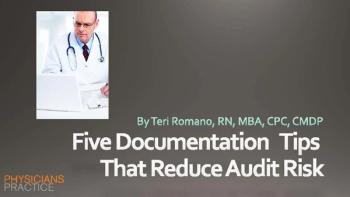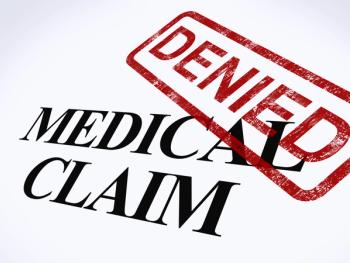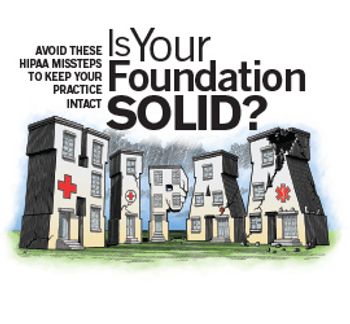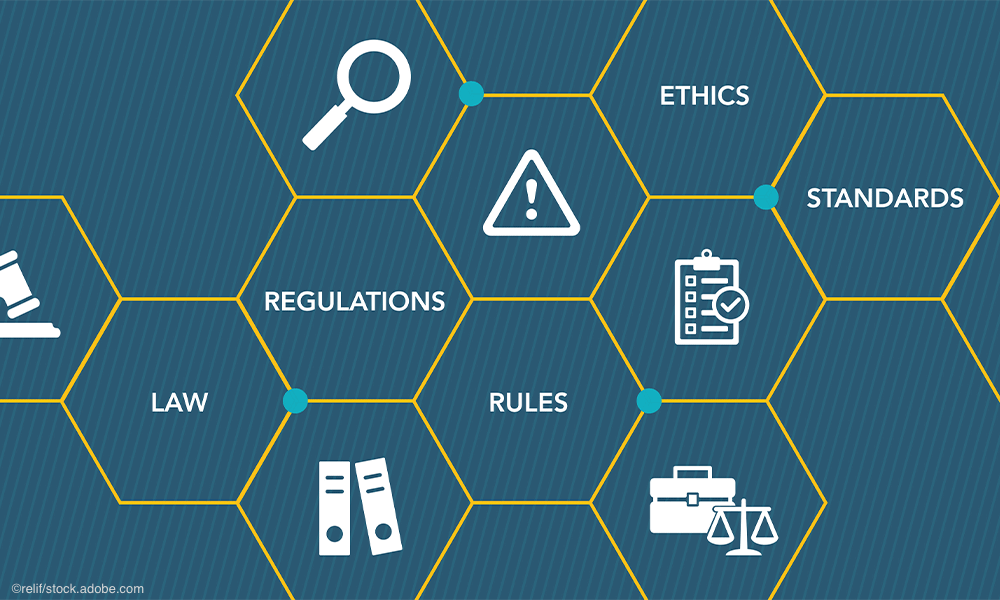Audits
Latest News
Latest Videos
Podcasts
CME Content
More News

Payer claim auditing specialist Angela Miller shares what practices need to know to understand and prepare for payer audits.

Performing random audits at your practice is a thing of the past. Here's how to use predictive analytics to get the most out of audits.

Regardless of who the payer is or the stated purpose, every potential audit inquiry should be taken seriously by your practice.

An overview of the four federal healthcare fraud statutes and what your practice can do to avoid violating any of them.

It's never been more important to make sure your medical record documentation is complete, accurate, and complies with federal guidelines.

OSHA recently introduced harsher penalties to employers who are violating workplace safety guidelines. Here's what you have to know.

Here are some of the vital basics doctors and their advisors need to know about captive and life insurance sales plans.

Here are eight elements of an effective corporate compliance program, which can prevent healthcare fraud and abuse before it ever starts.

Recent ransomware attacks and the Phase II Office for Civil Rights Audits underscore the importance of adequate policies and procedures.

When using third-party vendors for certain practice functions, it's always wise to take a close look at their performance.

Captive insurance companies can bring significant benefits to physicians, yet the risk of an IRS audit can increase.

If your practice suffers a security breach, staff must know their part in implementing an incident response.

Many physicians feel that useless chart documentation has grown to consume most of the patient visit, leaving little time for patient care.

CMS issues proposed two-midnight rule modifications and the reduction in the role of recovery audit contractors.

Physicians should be aware that Phase II of OCR's HIPAA Audits have commenced. Here is a short check-list to prepare your practice.

Nine HIPAA missteps that experts say medical practices make every day.

TAP - technical, administrative, and physical controls should form the foundation of HIPAA compliance.

When attesting to meaningful use, be sure you are truthful about your HIPAA compliance efforts. Otherwise, you could risk being audited.

For hospice providers in both acute care and home settings, one item to place on your New Year's resolutions list is CAHPS Survey Implementation.


In order to prevail in golf, you need to know the nuances of the game. Likewise, physicians should know how to navigate HIPAA.

If you believe your practice is too small to warrant the attention of Recovery Audit Contractors, think again. Here are ways to prepare for scrutiny.

In a new ruling, CMS agrees to partially pay pending hospital claims in exchange for withdrawal of claims appeals.

In light of continuing Medicare fraud, it is vital to review your coding and billing procedures. Prevention is key to avoiding expensive take-backs.

Physicians face a wide variety of exposures beyond medical malpractice claims including both labor and tax claims for misclassified contractors.










